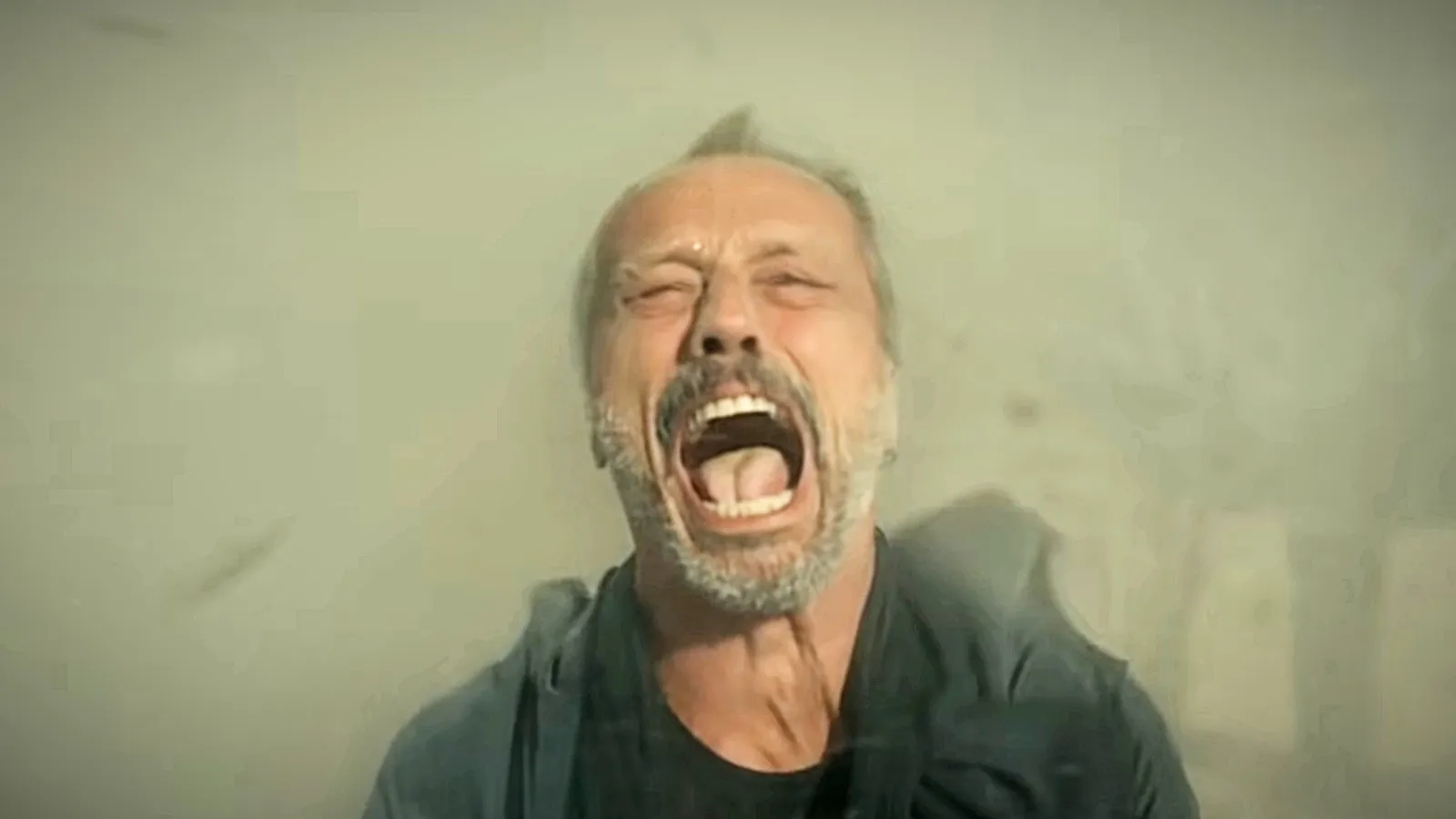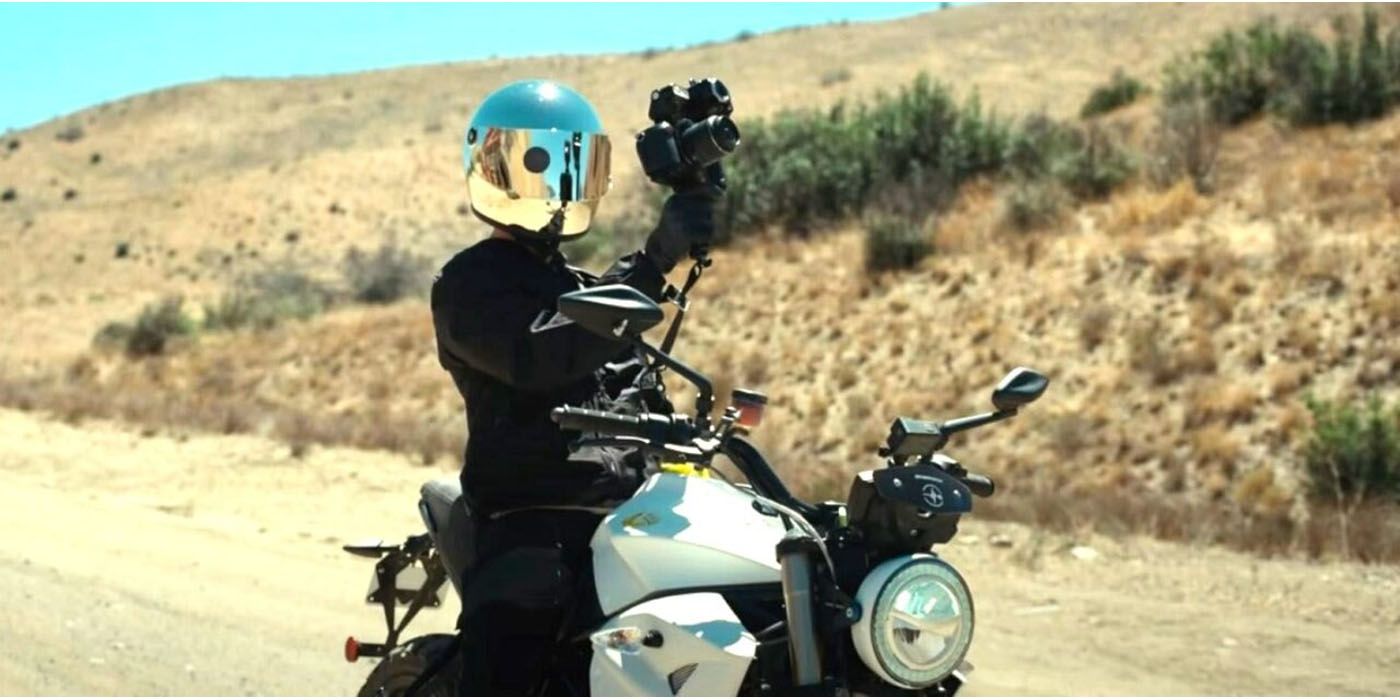There is a side of modern media, where you can view terribly thrilling videos, like a woman just narrowly missing an attack from a bear while she skis away, or a man falling into a glacier, teetering on the brink of death. Both, just happening to capture their experiences on film. A saying that often goes with these videos is “the cameraman never dies,” A rule that means as long as the camera is rolling, whoever yields it will come out unharmed. While the origin of this is unclear, for those of us who are chronically online, we get a good laugh at this idea that the camera is this all powerful device, that those who yield it are exempt from the plot, ignored and meant to follow the cast they capture. Jordan Peele’s Nope, however, breaks this unofficial rule for the sake of spectacle.
Jordan Peele’s “Nope” is a commentary on American society’s obsession with being this “cameraman.” These spectacles of looking, going on “Oprah,” capturing the impossible shot. It’s the likes and clicks, the fame and fortune that people, like Em and OJ, think they are searching for at first. It is through Peele’s genre-bending writing and directing that he is able to, through the guise of classic horror, western, and sci-fi tropes, send his message to his audience about the world’s obsession with “spectacle.”
In classic horror films, there is a “monster;” what would a western be without its horses and cowboys, and every good sci-fi film has to have its extra-terrestrial character that is “Not Of Planet Earth.” As Peele bends genres to his will, creating an exciting and original work as Peele does, his main message is not that the cowboys won and the aliens lost and planet earth is saved. The story is meant to serve to the audience an underlying theme, a warning if you will, of chasing the wild, using dangerous animals for views and capital gain; making monkeys dance and being shocked when they don’t listen, all to create that desperate “spectacle.” At first glance, before knowing the truth about “Gordy’s Home,” one could presume that the incident, which happened almost 30 years prior, was in direct correlation to Jupe’s supposed “viewers”/ what we now know to be Jean Jacket. In reality, Gordy’s Home, not having any relation to Jean Jacket, was demonstrating the lesson which Jupe failed to learn, and the rest of the media. “Gordy’s Home” was a show designed to attract a large audience, having an actual chimpanzee in the cast, the audience were amazed by what they saw, the monkey made to dance and act, and the ratings skyrocketed. In reality, the chimps who played Gordy had no decisions in the matter of their acting. They were “trained” as much as chimpanzees can be as they are not domesticated animals. As OJ states clearly, it’s that some animals aren’t fit to be trained, they have their own rules. What Jupe didn’t learn from this experience is that spectacle can’t be created or captured no matter how hard he chases this self declared destiny.

The death of the cameraman in this film appears in two distinct ways. The first way is with the death of Antlers Holst. Antlers is a true cameraman, meaning he lived for the art of cinema, the perfect shot. When he is sucked up by Jean Jacket, it is voluntary, because he is, in essence, dying for his art. The cameraman dies with his film rolling, cameras ablaze, and the audience sees Holst with more passion than he had throughout the entire film.This still ends in tragedy, as Holst’s perfect shot is lost to the soul sucking entity that is Jean Jacket in the end. The second cameraman’s death is that of the TMZ reporter. The TMZ reporter, rather than dying for art, the perfect shot, dies begging for his camera, pleading to record the spectacle of Jean Jacket. He is a mere paparazzo, the gross flies and camera flashes that chase excitement; that scrounge for the payment that comes from their images; the tiniest taste of fame from feasting on the torment of the celebrities. This cameraman dies, not as an artist to be remembered, but as a shell of a man, and a blurry video on a screen.

Peele uses these deaths as a commentary on the life-draining nature of Hollywood. With the Gordy scenes, he shows the ways in which actors are taken advantage of in their careers, at the hands of the studios, told to dance no matter how little they are paid and cared for. Through Holst, Peele shows the artist dissatisfied with their work, and only finding peace in the art that destroys them. Finally, the TMZ reporter shows the true nature of chasing spectacle, that when you chase it, you will only end up lying in the dirt.